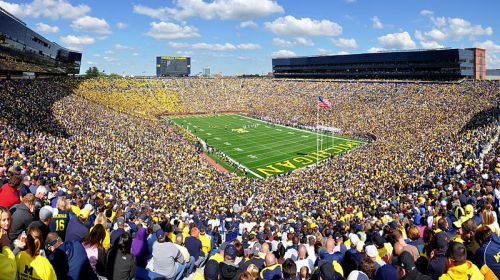
On Sunday, the New York Times published an extensive piece surveying the ways American universities are using their access to students’ information to tailor their college experiences. Universities collect a huge amount of data on their students—course selection and grades, past educational experience and standardized test scores, and other personal information. Austin Peay University analyzes a student’s data and suggests classes in which the student is likely to “succeed.” Arizona State University uses its data to identify students who are “off track” based on course selection and course results. ASU is also experimenting with using information on student swipes of ID cards around campus—at the gym, at the dining hall, at the dorm, at the library, etc.—to understand social ties. (Last week, my colleague Catherine Crump also wrote about universities experimenting with monitoring students’ internet usage to assess mental health.)
While universities have an important role in supporting students towards graduation, these data mining methods threaten campus as a place of self-exploration, development, and discovery. A student who knows that a computer is analyzing his course selection and grades may be less likely to choose a course out of the ordinary or take a risk on an assignment for fear of being deemed “off track.”
During my first year of college at the University of Michigan, I took two Spanish classes, a bible lecture, a philosophy seminar, a course on political advertising, and a survey course on arts and culture in public life that was taught by a professor who primarily studied 20th Century avant-garde Mexican film. Like my academics, my social life was diverse and often disparate as I met kids unlike me and the people I knew growing up. While these courses may not have contributed directly to my eventual degree in public policy this past May nor to my current position with the ACLU—and those freshman year dorm buddies ended up being weirdos—the lessons and experiences from the decisions and mistakes I made as a fresh-out-of-high-school 18 year old still prove invaluable.
This blog has frequently described the chilling effects of similar data analysis programs on free speech and social interactions. These effects are particularly relevant on college campuses where malleable young people work towards critical decisions about lifestyle, world view, and career. Students must not feel restrained by the potential judgment of a computer program as they develop themselves as adults and community members. Pressuring students to fit into an algorithm threatens the intellectual and social vibrancy of the campus (and of society, as my colleague Jay Stanley discussed last week). Even if a student does not expect her behavior to be flagged for further scrutiny, we have seen time and again that these complex computer algorithms make mistakes that have very real consequences.
I am sure that I would have questioned my course selection had I thought it might be flagged as wrong. I might have opted out of second (or third) dinner at the dining hall had I expected my ID swipe would lead to someone noticing my eating habits. Instead, I grew a lot and learned a lot in college because I made choices that my academic advisors, my professors, maybe my mother—and even a computer program!—may have considered off track.


